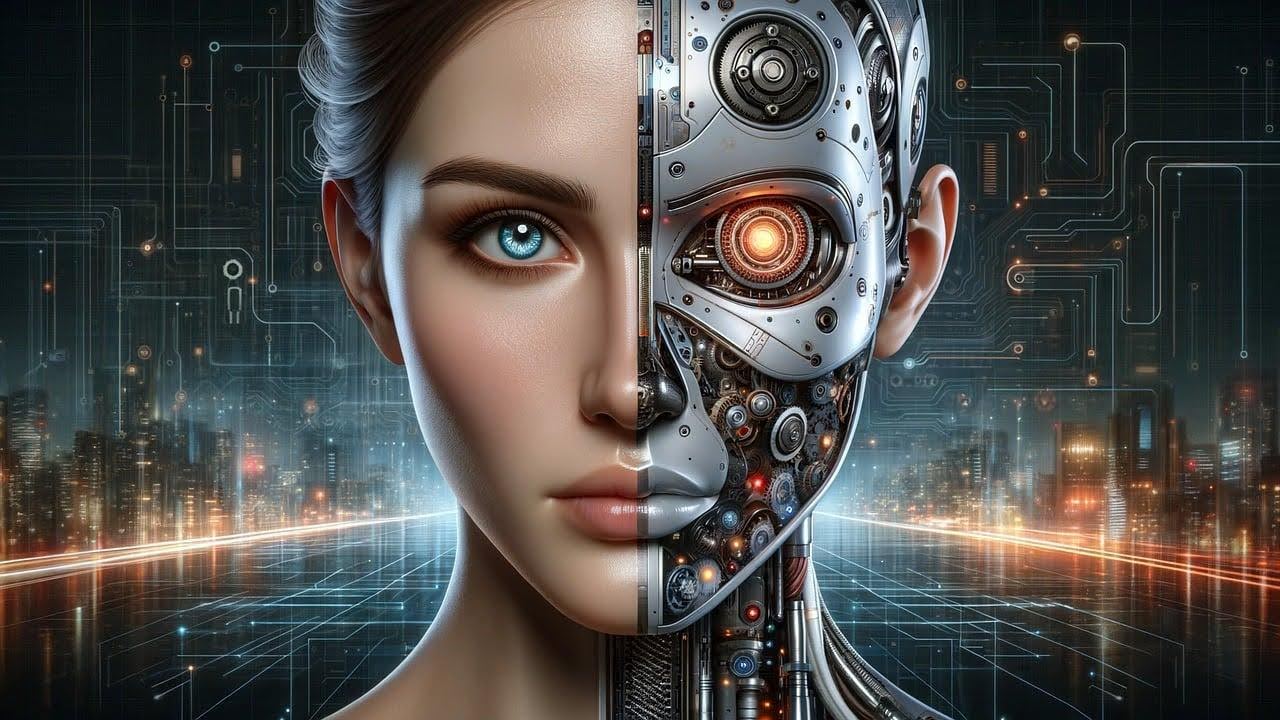AI is the biggest hot-button topic in the technology sector right now. In fact, it has been since November 2022 when the first iteration of ChatGPT gave us a glimpse of what was possible with AI chatbots. That, of course, has had a direct impact on financial markets; Microsoft’s usurpation of Apple as the world’s largest company by market cap is largely down to the former’s partnership with OpenAI. Nvidia’s barnstorming stock run in 2023? That was largely down to the AI boom. It goes further, certainly, and experts are talking about an AI revolution that will touch every industry, causing both upheaval and advantages.
Fintech is certainly not going to be immune from any revolution. Indeed, we have already seen a plethora of AI trading tools and services (although we would always preach caution with these, particularly when they overpromise). But we have probably only scratched the surface of what is possible when it comes to AI, fintech, and trading. That said, there is also a lot of hype over AI, and there is perhaps not enough debate over the challenges for the financial trading industry. Below, we are going to try to frame some of those challenges in a level-headed manner while simultaneously acknowledging that fintech and trading will likely change irrevocably.
Fintech & Markets Have Always Embraced Change
The first thing to note is that any disruption will not be hostile. We aren’t talking about the kind of revolution in the early internet era, which famously saw bookshops close due to Amazon or Netflix supplanting Blockbuster video. Those traditional industries failed to anticipate the coming ubiquitousness of the internet. The fintech sector has not dismissed AI, nor will it be resistant to it. Those who use top online trading platforms will know that they evolve over time. Strategies, too, evolve. And if we break it down, AI trading is an advanced form of algo trading, albeit somewhat more proactive.
What Is Being Mooted for AI & Fintech?
AI is clearly going to change many aspects of fintech, and that impact is already being felt through everything from customer service bots to market analysis tools. Yet, when it comes to trading, the most seductive ‘service’ is the ability of AI to analyze vast amounts of data in real time, working proactively to pinpoint trades and execute them. As mentioned, this is a step up from algo trading, taking the human element out of the equation. At its most optimistic, proponents believe that every financial trader will soon have an AI “companion”, a specialist bot that will build their trades and execute them.

The Player Versus Player Contradiction
But here, we meet our first challenge. Financial trading, for want of a better term, is a player-versus-player game. There is not an unlimited supply of money in the market, and there is a loser on the other side of a winning trade. If everyone uses a “perfect” AI trading bot to predict the market, then we enter a paradoxical position where everyone is taking the same position, shorting or longing a financial asset. Either we end up with competing AI models that take different stances on a trade (unlikely), or we end up with a model that is no longer sustainable. Yes, there may be a first-mover advantage for some AI traders, but if these tools end up being ubiquitous, then there is an inherent structural problem.
The Biggest Question of All: Data Access
Here’s a prediction: One of the most important legal battles in the coming years will be over how AI accesses and scrapes data. The first shots have already been fired by the New York Times, which is suing Microsoft and OpenAI for “billions” after accusing the firms of training AI tools on its content without permission. While this is not directly related to fintech, the same issues are going to arise about access to financial data. The data is precious, and it may increasingly become guarded by individual traders and financial institutions. After all, in this player-versus-player arena, why would you want to give everyone an advantage?

The Oversell of AI Capabilities
Earlier, we said to be cautious about using AI trading tools. That’s not to dismiss them – far from it. But there is, especially at this early stage in their development, a tendency to exaggerate how useful they are. AI, in general, is adept at analyzing structured data, but it still struggles with the more human-like unstructured data. In short, AI can reason based on available data, but it cannot yet make leaps of faith based on intuition. Financial traders need a balance of both these qualities. Yes, AI will improve, and we only need to look at the GPT Store – where we will see AI bots specialized in financial trading – to appreciate where we are going. For instance, we will have GPTs (essentially bots that act as microservices) trained in specific areas, such as forex CFDs or South Asian stocks. So, traders will probably have a bunch of specialized AI tools, not just one overarching one. Nonetheless, we can put too much stock into the ability of AI to predict correctly.
Conclusion: AI Is, Nevertheless, Inevitable
While we have set out some of the challenges and, hopefully, dispelled some of the myths about AI’s role in financial trading, we should be clear that it does represent the future. If you aren’t a convert, then you soon will be. That said, just because AI will likely revolutionize financial trading and the wider fintech industry does not mean it will be all-encompassing. More likely, every trader will have a suite of AI tools for analysis and maybe do some of the donkey work when it comes to executing trades. But we are not about to enter an era where trading becomes “easy” with perfect AI prediction tools. The structures of trading financial markets mean there have to be winners and losers.



































